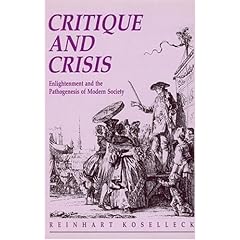Since writing a post here 4 days ago, Detachment in the work of Elias, I have reviewed my own writings on the subject that I haven’t looked at for over 15 years. There are only two, a major section in my unpublished PhD thesis, The Development of Scientific Knowledge in Relation to the Development of Societies: a Problem in the Contemporary Sociology of Science (1990) and a paper I gave at the XIII ISA World Congress in Bielefeld in 1994, The Role of Levels of Integration in Elias’s Sociology of Knowledge, also unpublished. As is evident, I have not been particular good at getting my work into print! I was very fortunate to have had Richard Kilminster as my supervisor and indeed we attended the ISA World Congress together. The section of my thesis that is relevant is chapter 7, The Importance of Ontology: Elias’s Realist Position and particularly the chapter subsection, The Ontological Model of Integrative Levels. The re-reading prompted me to have a quick scan through more recent work that addresses similar aspects of Norbert Elias’s work and I immediately found that of Stephen Quilley and Steven Loyal as well as sections in Richard’s latest book. I have started to add these to the bibliography.
This has reawakened my interest in this area, the sociology of knowledge, the nature of scientific knowledge as process and product, and how the sciences map onto Elias’s notion of the ‘Great Evolution’ and the emergence of and relations between integrative levels of existence. I have for a number of years now been teaching a module on Society and the Environment part of which covers the role of science and technology in the ‘mastery’ of nature and the development of industrial economies and hyper-consumerism. This has tended to focus on both a critical realist account of science and its underlying ontology as compared with overly reductive and mechanistic scientific models of natural and ecological processes. This in turn has been counterbalance with a discussion of co-constructivist and co-evolutionary perspectives. It is quite clear to me that my teaching and presentation of these issues have undoubtedly been influenced by my earlier work on Elias’s ideas but I have drawn on them in a fairly pragmatic and simplified fashion and not referred to these or my earlier work explicitly. The time is right I feel, or will be as soon as I become an independent scholar after retirement, to follow these ideas up and perhaps a useful way to do this will be as an explicit dialogue between my earlier work, more recent work in the same Elisian mode, critical realism, and co-constuctivist and co-evolutionary ideas. I think it would be also interesting to relate this to the rather vague ideas to be found in the work of Ulrich Beck on ‘the democratisation of science’.
Frankly, I find the prospect of working on this much more interesting than the paper I was proposing to write on critical theory I mentioned in another post here, Critical sociology, so I’ll probably drop that for the moment.
 For a number of reasons I have become increasingly interested in explicitly ‘critical’ sociology. Of course some would say that sociology is inherently critical, and I would agree. By explicitly critical sociology I mean sociologists and sociologies that go out of their way to announce and establish their critical credentials. Over the last few years I have been using the ideas of
For a number of reasons I have become increasingly interested in explicitly ‘critical’ sociology. Of course some would say that sociology is inherently critical, and I would agree. By explicitly critical sociology I mean sociologists and sociologies that go out of their way to announce and establish their critical credentials. Over the last few years I have been using the ideas of